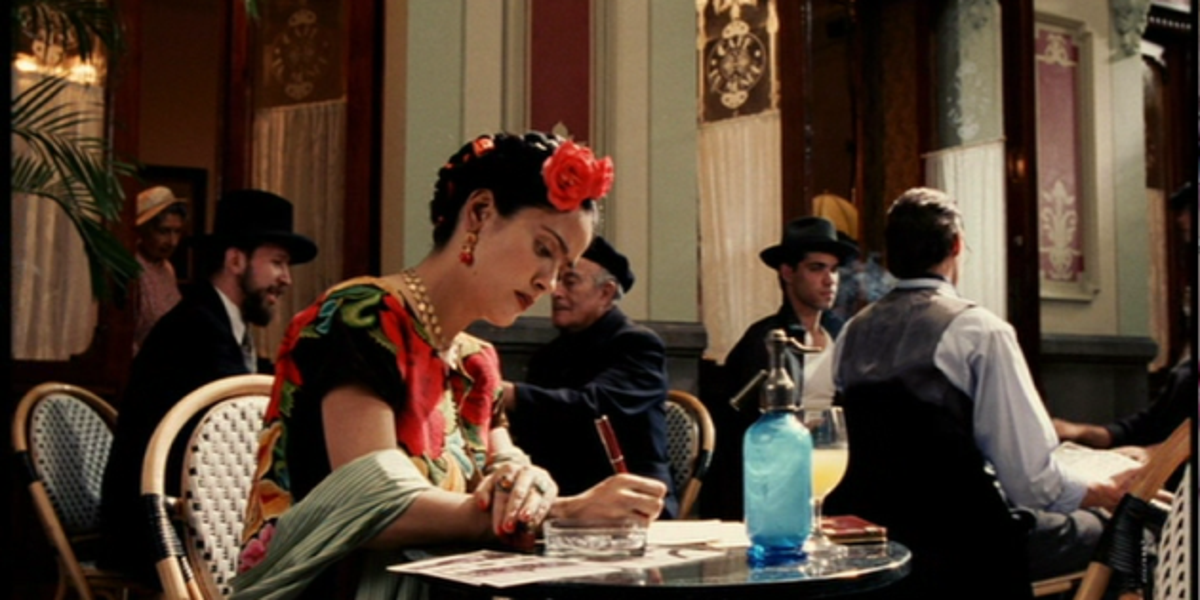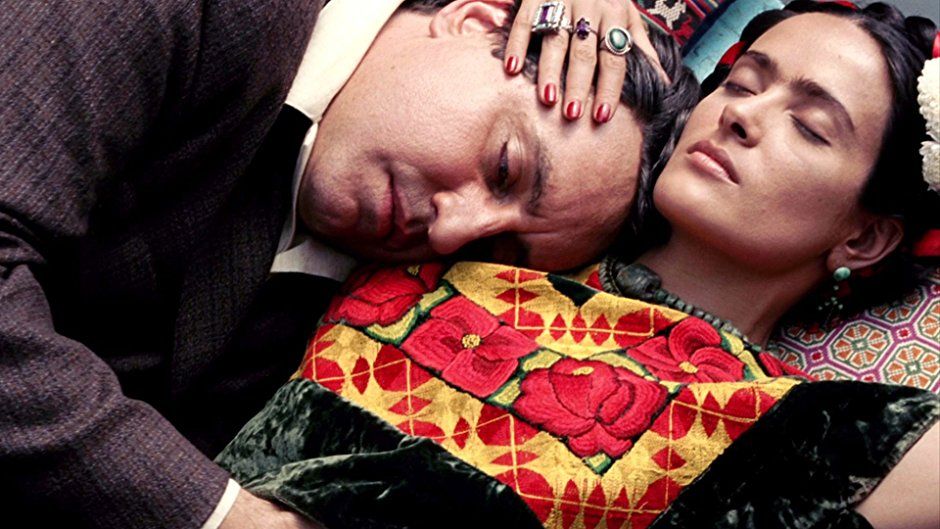Julie Taymor’s 2002 biopic, Frida, tells the story of this remarkable bi woman’s life. Salma Hayek portrays this incredible woman. If you’re unfamiliar with the Unicorn Scale, here’s a breakdown of how it works.
If you haven’t seen Frida, be warned of SPOILERS ahead!
What I Liked:
The total lack of drama. Frida is shown as being a rebel her entire life, of not being bound by conventionality. She supports the Mexican revolution, she dresses in men’s clothes, she has premarital sex, and she has one super sexy tango with Tina Modotti (Ashley Judd), that ends in a kiss. She lives her life freely and doesn’t worry too much about what the world thinks of her for doing so.
Not only is her bisexuality not a big deal, the movie completely avoids so many persistent bi stereotypes. Frida was a deeply flawed woman, but those flaws had nothing to do with her sexuality. She isn’t indecisive, she isn’t evil, she isn’t manipulative. Her flaws are almost the opposite of these stereotypes; she’s too forthright, she feels everything too strongly, she’s promiscuous but not sexually manipulative.
As the film progresses, she has a life-long and tumultuous relationship with Diego Rivera (Alfred Molina) and several affairs, including Leon Trotsky (Geoffrey Rush) and Josephine Baker (Karine Plantadit-Bageot). Frida and Diego accept each other’s numerous lovers, although both are also still prone to explosive bursts of jealousy. At no point is the fact that her lovers are both male and female ever the cause of contention. The only time it is even a little bit of an issue is when Frida finds out that she had just slept with a woman that Diego had already had an affair with.

The nonchalance with which the film presents both her bisexuality and her many lovers is wonderful. It is too easy for us to imagine that the 1930s and 1940s were a time defined by narrow social mores, women in big dresses, “traditional” marriages, etc. We imagine a time that was more repressive but also simpler. Taymor shows Frida traveling between Mexico, the U.S., and Paris. It depicts artistic and political tension and upheaval. There was nothing simple about this time. Frida’s relationships with men and women, her unconventional marriage, her vibrant sexuality in the face of her physical disabilities also boldly challenge this idea of a “simpler time”.

What I Didn’t Like:
Every time I watch a movie with a bi character, I hold my breath waiting to hear the word. That word that you almost never hear: bi. Admittedly the historical setting of this film means that I really had no right to expect to hear the word, but it is still frustrating having Frida’s bisexuality remain unnamed, like the bisexuality of so many other characters in so many other stories.
Most of the film revolved around her marriage to Diego Rivera, and her relationships with women were only shown in passing. A night of passion, breakfast the next morning, a kiss, a dance. We never get a chance to understand how deep these relationships are, and they always feel a little bit like one-night stands.

Even her relationship with Trotsky is given more time and attention, with them clearly reveling in an intellectual connection and a shared sense of humor. Although the film shows that she loved many women, it is unclear if these relationships compare to the deep bonds that she had shared with Alex (Diego Luna), Diego Rivera, or Leon Trotsky.
I would have loved to see one of her same-sex relationships receive a little more attention, loved to have seen the deep connection that she had with her male lovers shared with her female lovers. However, considering the time limitations of a feature film, I am also thrilled that many of the women in her life made it into the movie at all.
The Rating:
It’s easy to imagine that our generation is always the first to have been liberated, to have felt free to express our bisexuality. I love that Taymor’s Frida reminds us that we didn’t invent bisexuality. Before many of us were born, there was a vibrant Mexican artist living and loving, not limited by gender.
